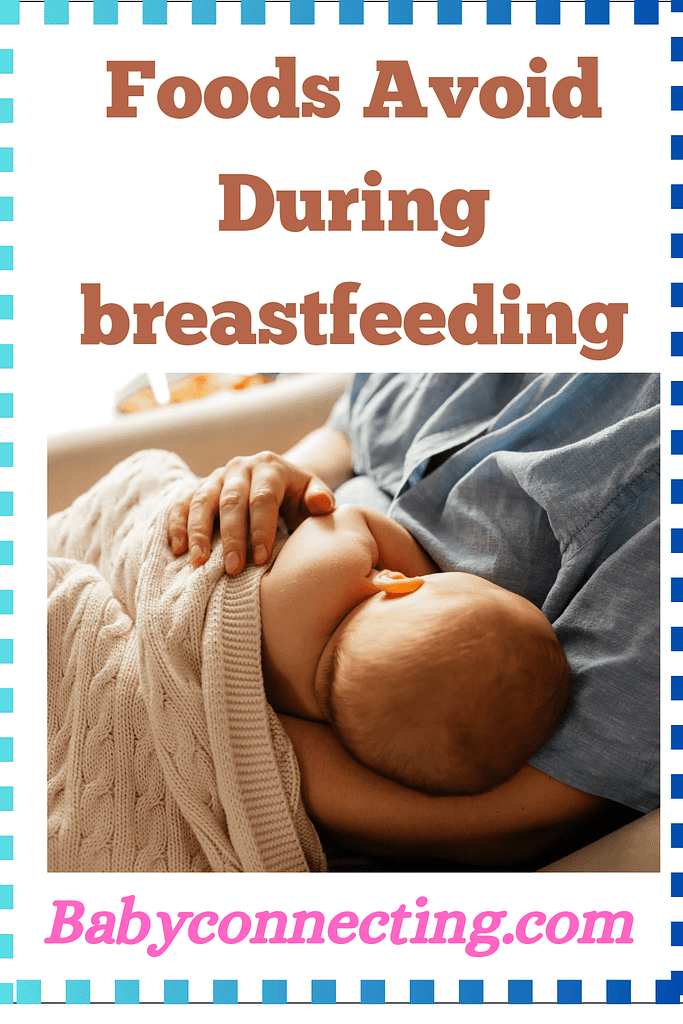Foods to Avoid While Breastfeeding (And Healthy Alternatives to Enjoy Instead)

Breastfeeding is a unique and rewarding experience, but it can also come with a lot of questions—especially when it comes to your diet. While nursing, the foods you eat can impact both your health and your baby’s well-being. That’s why it’s important to know which foods are best avoided during this time. However, the good news is there are plenty of nutritious and delicious alternatives to keep both you and your baby happy and healthy. In this blog post, we’ll highlight some foods to steer clear of while breastfeeding and suggest positive alternatives to help you maintain a balanced diet.
1. Limit High-Mercury Fish
Fish can be a fantastic source of omega-3 fatty acids, which are beneficial for your baby’s brain development. However, some types of fish contain high levels of mercury, which can be harmful to your baby’s nervous system if ingested in large quantities.
Foods to Avoid: Shark, swordfish, king mackerel, and tilefish are high in mercury and should be limited or avoided.
Healthy Alternative: Opt for low-mercury fish like salmon, sardines, trout, and shrimp. These options are not only safer but also rich in beneficial omega-3s.
2. Say No to Excessive Caffeine
While you don’t have to eliminate caffeine completely, it’s a good idea to limit your intake. Too much caffeine can make its way into breast milk and potentially cause your baby to become fussy, restless, or have trouble sleeping.
Foods to Avoid: Large amounts of coffee, energy drinks, and sodas with high caffeine content.
Healthy Alternative: Keep your coffee to one or two small cups a day and try caffeine-free herbal teas like chamomile or rooibos as a relaxing alternative. Decaf coffee is also a great option if you want to enjoy the flavor without the caffeine.
3. Avoid Alcohol
Moderation is key when it comes to alcohol. While an occasional glass of wine or beer might not cause harm, it’s essential to time your alcohol consumption carefully or avoid it altogether to ensure it doesn’t affect your baby.
Foods to Avoid: Alcoholic beverages, especially if consumed right before breastfeeding.
Healthy Alternative: If you want to enjoy a celebratory drink, consider non-alcoholic sparkling beverages, mocktails, or sparkling water with a splash of fruit juice. If you choose to have alcohol, wait at least two hours per drink before breastfeeding to allow the alcohol to clear from your system.
4. Watch Out for Gas-Inducing Foods
Certain foods can make babies gassy or cause digestive discomfort, particularly in the first few months. While each baby is different, some foods are common culprits.
Foods to Avoid: Cruciferous vegetables like broccoli, cabbage, cauliflower, and Brussels sprouts can sometimes cause gas. Legumes like beans and lentils may also be problematic for some babies.
Healthy Alternative: Focus on easily digestible veggies like carrots, squash, sweet potatoes, and leafy greens like spinach. If you enjoy cruciferous vegetables, try steaming them, which can make them easier on your digestive system.
5. Limit Spicy Foods (If Necessary)
Some moms worry that eating spicy foods might make their breast milk taste strange or upset their baby’s stomach. While many babies have no issue with a little spice, others might react to strong flavors.
Foods to Avoid: Extremely spicy dishes or foods high in strong spices like chili peppers, curry, or hot sauces if you notice your baby reacting negatively.
Healthy Alternative: Experiment with milder spices and herbs like basil, dill, thyme, or a small amount of mild curry. You can always gradually increase spice levels to see how your baby responds.
6. Be Cautious with Dairy
Some babies may be sensitive to cow’s milk proteins that can be passed through breast milk, causing symptoms like fussiness, gas, or skin rashes. If you suspect dairy might be an issue, consult your healthcare provider before making any dietary changes.
Foods to Avoid: Cow’s milk, cheese, yogurt, and other dairy products if you suspect sensitivity.
Healthy Alternative: Try calcium-rich alternatives like almond milk, oat milk, coconut yogurt, and fortified non-dairy products. Leafy greens, nuts, seeds, and tofu are also excellent calcium sources.
7. Avoid Processed Foods High in Sugar and Artificial Additives
Processed foods often contain high amounts of sugar, unhealthy fats, and artificial ingredients that may not be beneficial for you or your baby. These foods can lead to unnecessary weight gain and energy crashes.
Foods to Avoid: Sugary snacks, fast food, processed snacks, and foods with artificial colors, flavors, or preservatives.
Healthy Alternative: Choose whole foods like fresh fruits, nuts, seeds, whole grains, and homemade snacks. Opt for natural sweeteners like honey or maple syrup in moderation instead of processed sugar.
8. Be Mindful of Certain Herbs and Supplements
While many herbs can be beneficial during breastfeeding, some have the potential to reduce milk supply or cause other side effects. Use caution when consuming herbs in large amounts or taking herbal supplements.
Foods to Avoid: Large amounts of herbs like peppermint, sage, parsley, and oregano, which may impact milk production.
Healthy Alternative: Focus on herbs that support lactation, such as fenugreek, blessed thistle, and fennel. Always consult a healthcare provider before taking any herbal supplements.
9. Limit Foods High in Allergenic Potential (If Concerned)
If you have a family history of food allergies, you might want to be cautious with highly allergenic foods, especially if your baby shows signs of sensitivity.
Foods to Avoid: Peanuts, tree nuts, shellfish, and eggs if you have concerns about potential allergies.
Healthy Alternative: Introduce these foods slowly and observe how your baby reacts. If you’re concerned, speak with a pediatrician or dietitian for guidance on safe introductions and alternatives.
10. Watch Out for Foods with Strong Flavors
Certain foods have strong flavors that can subtly change the taste of breast milk. While this isn’t necessarily a bad thing (some research suggests it can help babies become more adventurous eaters), a few babies might show a preference for mild flavors.
Foods to Avoid: Garlic, onion, and very strong herbs if you notice your baby refusing to nurse.
Healthy Alternative: Use mild herbs and seasonings while gradually introducing stronger flavors. Babies often adapt, so you can slowly reintroduce foods over time.
Conclusion
Breastfeeding moms don’t have to follow a restrictive diet, but being mindful of what you eat can help ensure that both you and your baby thrive. Remember that every baby is different—what affects one child may not bother another. Listen to your baby’s cues, consult with healthcare professionals when nee
ded, and enjoy a varied and nutritious diet that supports your breastfeeding journey!


